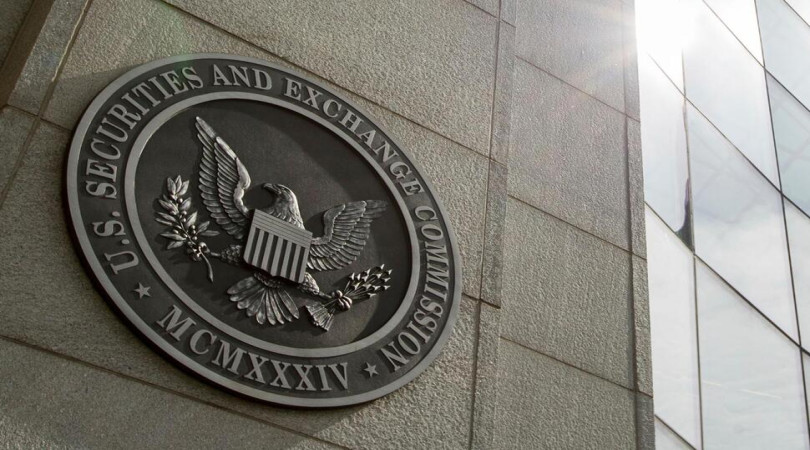Cryptocurrencies have enjoyed a strong resurgence in 2023. Bitcoin (BTC) is up by about 78% as of Aug. 10, and Ethereum (ETH) has rewarded investors with a year-to-date gain of about 55%. Renewed interest in the alternative asset and institutional investors pouring into crypto have contributed to the rally.
Bitcoin grabbed the spotlight in 2017 when the coin surged by roughly 2,000% in one year. Bitcoin, like other cryptocurrencies, has always been more volatile than most assets. However, the general trend has been upward. Bitcoin gains have exceeded 376% over the five years preceding Aug. 10, and Ethereum has done even better, with a 454% gain.
Those types of long-term returns tend to attract investors who want to maximize their profits. Cryptocurrencies like Bitcoin and Ethereum have outperformed so-called FAANG stocks (Amazon.com Inc. (ticker: AMZN), Apple Inc. (AAPL) and other tech leaders) over the past five years, but there's more to crypto than Bitcoin and Ethereum.
Investors can choose from thousands of altcoins to diversify their crypto portfolios. Cardano (ADA), XRP (XRP), Solana (SOL) and Dogecoin (DOGE) are some of the top altcoins by market cap.
Cryptocurrencies can continue to rally and generate long-term gains as more businesses use blockchain technology and institutional investors accumulate crypto. Here's what you need to know about how to invest in cryptocurrency:
Risks of Investing in Crypto

What Is Cryptocurrency?
Cryptocurrency is a digital asset that operates on a blockchain. This blockchain is a peer-to-peer medium of exchange without a central authority. Pavel Matveev, CEO and co-founder of Wirex, says the decentralized nature of crypto gives it several advantages over fiat currencies.
"By eliminating the reliance on a central authority and operating through a network of distributed nodes, blockchain started a new era of security and transparency," Matveev says. "This design makes it more resilient against cyberattacks, system crashes and human errors compared to centralized systems."
Crypto transactions get recorded in a public blockchain. A digital asset like Bitcoin can act as a storage of value, similar to gold. The Ethereum blockchain allows smart contracts to execute secure financial transactions. But any cryptocurrency's value depends on how others perceive the asset. If more businesses enable crypto payments, the alternative asset can see more use for its intended purpose. At the moment, many investors have been accumulating crypto because of how it has rewarded long-term investors over the past few years.
Crypto Exchanges and Crypto Wallets
Bitcoin and Ethereum's coin Ether are the two most popular cryptocurrencies, but investors can choose from thousands of cryptos. Deviating away from the two top cryptos can increase your potential returns but can also significantly increase your risk.
Some cryptocurrencies ride a short-term wave of momentum before fading off into the sunset. A crypto investment can become worthless, but this fate is less likely for cryptocurrencies with large market caps.
Beginner investors may benefit from using a crypto exchange to facilitate their transactions. Some brokerage firms, such as Coinbase Global Inc. (COIN) and Robinhood Markets Inc. (HOOD), let you buy crypto without creating your own wallet. These firms store crypto for you, but you still get to harvest long-term gains.
As you get more comfortable with crypto, setting up a crypto wallet can give you true ownership of your assets without relying on a centralized entity. Just make sure you keep your private key somewhere you can easily find it. That private key is your crypto wallet's password, and you cannot get a new passcode or access the wallet if you forget your private key.
Regardless of how investors trade crypto, they should watch out for fees and spreads. Looking at crypto transaction fees can help you gauge which brokerage firms offer better deals. Lowering your transaction fees will protect more of your capital, which can then go into new investments.
Risks of Investing in Cryptocurrency
Every investment has risks, and crypto is no exception to the rule. The asset is speculative and has produced millionaires, but getting in at the wrong time can lead to significant losses.
Bitcoin has performed well year to date and over the past five years. However, the cryptocurrency has fallen 57% from its all-time high of $68,789.63. The big drop, compared with strong year-to-date gains, highlights how unstable these assets can be. Jatali Bellanton, CEO of BMU Meta crypto hedge fund, encourages investors to look at the big picture instead of at the sharp volatility.
"Even though people discuss its volatility, the returns are high for the right pick. Imagine if a company is up by 300%, and then it drops by 50%," she says. "In the end, it is still up 100%. Be sure to bank some profits and not get too greedy."
Regulation has always been a central focus for the crypto investment thesis. While many countries have lightened up on the adoption of cryptocurrencies, other countries are still placing restrictions on cryptocurrencies or banning them outright.
You should do your due diligence before committing to a crypto brokerage, and even then, a crypto wallet may be the better choice. Investors who put their crypto into FTX saw their assets evaporate and become inaccessible after founder Sam Bankman-Fried was arrested on charges that he mismanaged funds and defrauded investors. The FTX fiasco demonstrates the worst of what can happen to crypto investors. Keeping your coins in a crypto wallet reduces this concern, since you own your crypto and can access it at any time.
It may take a while for cryptocurrencies to fulfill their original mission as units of exchange. More businesses would have to enable crypto as a payment method, and even then, investors may be more inclined to hold onto an asset that has outpaced the S&P 500 and Nasdaq 100 over the past five years.
How to Make Money with Cryptocurrency
Cryptocurrencies offer several paths to monetization for investors. You can buy cryptocurrencies and hold them over the long run, hoping these assets will gain in value. Investors can also trade crypto and capitalize on price fluctuations.
Some traders monitor price fluctuations throughout the day, while others set "good 'til canceled" orders to have trades executed once crypto reaches the set limit price. These types of orders minimize the amount of time traders spend in their portfolios and looking at crypto price charts.
Crypto staking is another way to earn money with "proof of stake" cryptocurrencies such as Ethereum and Cardano. It's similar to lending crypto to other investors that you can reclaim at any time. Staking allows crypto investors to participate in the validation of transactions on the blockchain.
Matveev explains how crypto staking is similar to collecting dividends from your favorite stocks: "Crypto staking refers to the process of earning passive income by holding coins in a wallet. This concept bears some resemblance to a traditional bank deposit, though the crucial distinction lies in the utilization of the deposited funds. Rather than being used for investments and loans, staking employs these funds to facilitate the smooth functioning of the underlying blockchain network."
The yield you earn from crypto staking depends on the type of crypto you use. Less risky cryptocurrencies like Ethereum command lower yields, while you can earn more cash flow with altcoins like Cardano, Solana and Dogecoin. Crypto staking can generate 5% to 10% yields for some tokens.
Takeaway
Cryptocurrencies are innovative currencies that have rewarded long-term investors. Digital assets are more volatile than most asset classes and are speculative. Plus, it is easier to calculate the intrinsic value of publicly traded companies than it is to perform those calculations for crypto. The industry is still relatively new and filled with potential, but it is a high-risk, high-reward asset.
Tags: cryptocurrency, investing, money, bitcoin, Ethereum, mining, dividends, financial regulation, banking, blockchain






